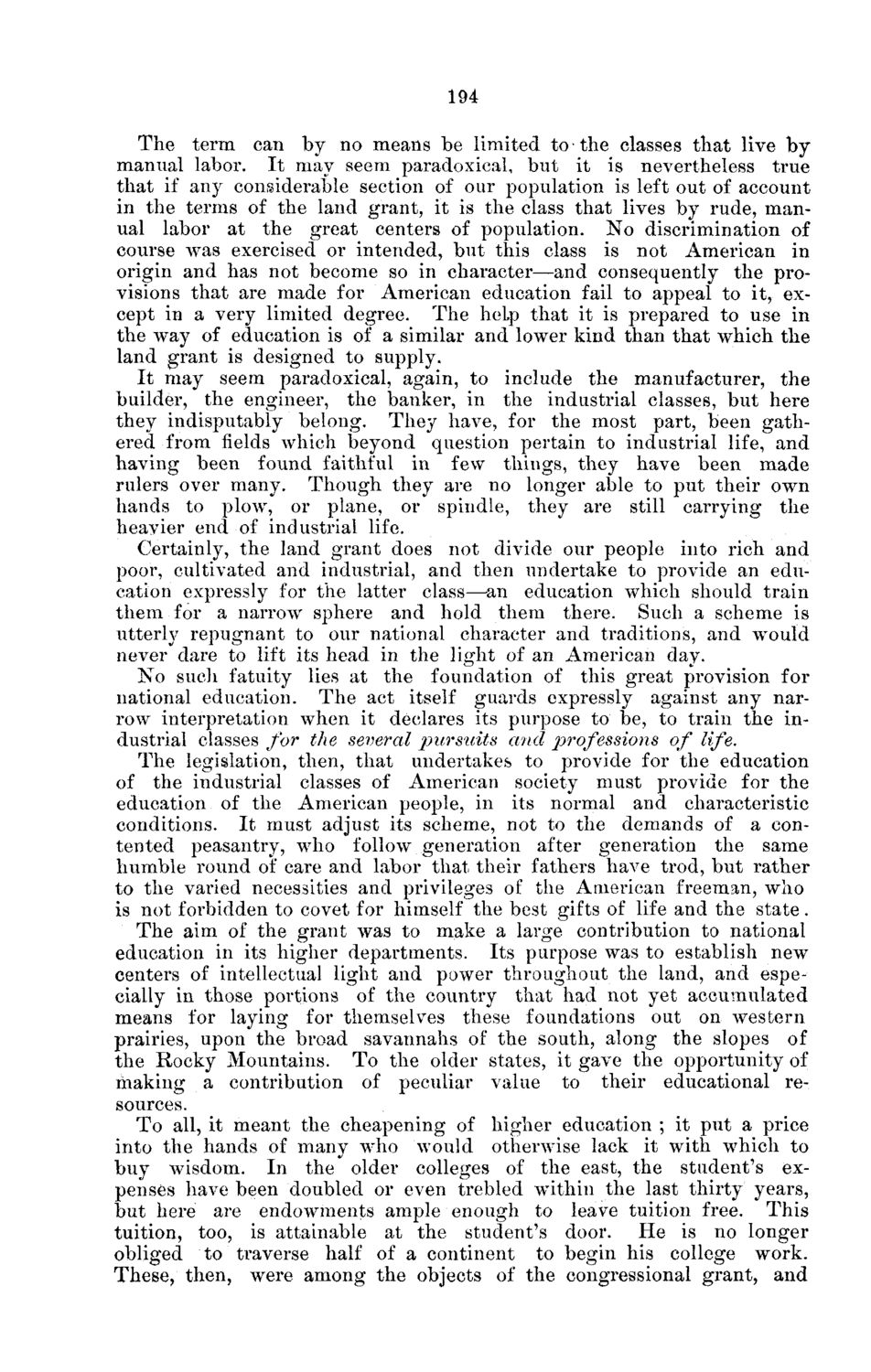| |
| |
Caption: Board of Trustees Minutes - 1878
This is a reduced-resolution page image for fast online browsing.

EXTRACTED TEXT FROM PAGE:
194 The term can by no means be limited to the classes that live by manual labor. It may seem paradoxical, but it is nevertheless true that if any considerable section of our population is left out of account in the terms of the land grant, it is the class that lives by rude, manual labor at the great centers of population. No discrimination of course was exercised or intended, but this class is not American in origin and has not become so in character—and consequently the provisions that are made for American education fail to appeal to it, except in a very limited degree. The help that it is prepared to use in the way of education is of a similar and lower kind than that which the land grant is designed to supply. It may seem paradoxical, again, to include the manufacturer, the builder, the engineer, the banker, in the industrial classes, but here they indisputably belong. They have, for the most part, been gathered from fields which beyond question pertain to industrial life, and having been found faithful in few things, they have been made rulers over many. Though they are no longer able to put their own hands to plow, or plane, or spindle, they are still carrying the heavier end of industrial life. Certainly, the land grant does not divide our people into rich and poor, cultivated and industrial, and then undertake to provide an education expressly for the latter class—an education which should train them for a narrow sphere and hold them there. Such a scheme is utterly repugnant to our national character and traditions, and would never dare to lift its head in the light of an American day. No such fatuity lies at the foundation of this great provision for national education. The act itself guards expressly against any narrow interpretation when it declares its purpose to be, to train the industrial classes for the several pursuits and %)rofessions of life. The legislation, then, that undertakes to provide for the education of the industrial classes of American society must provide for the education of the American people, in its normal and characteristic conditions. It must adjust its scheme, not to the demands of a contented peasantry, who follow generation after generation the same humble round of care and labor that their fathers have trod, but rather to the varied necessities and privileges of the American freeman, who is not forbidden to covet for himself the best gifts of life and the state. The aim of the grant was to make a large contribution to national education in its higher departments. Its purpose was to establish new centers of intellectual light and power throughout the land, and especially in those portions of the country that had not yet accumulated means for laying for themselves these foundations out on western prairies, upon the broad savannahs of the south, along the slopes of the Rocky Mountains. To the older states, it gave the opportunity of making a contribution of peculiar value to their educational resources. T o all, it meant the cheapening of higher education ; it put a price into the hands of many who would otherwise lack it with which to buy wisdom. In the older colleges of the east, the student's expenses have been doubled or even trebled within the last thirty years, but here are endowments ample enough to leave tuition free. This tuition, too, is attainable at the student's door. He is no longer obliged to traverse half of a continent to begin his college work. These, then, were among the objects of the congressional grant, and
| |